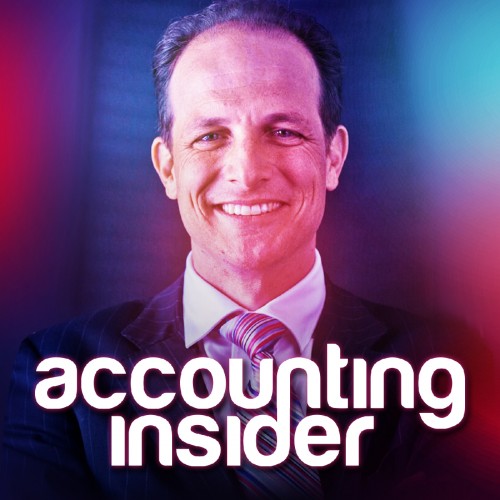Wills and Estates, mapping your way through the minefield. Kym Nitschke & Rosey Batt
Family feuds over who is entitled to mum and dad’s estate is becoming a more common problem. This weeks guest, Adelaide lawyer, Rosie Batt has seen this issue time and time again. In this podcast she shares her insights into how to avoid common mistakes and gives tips on how to draft a great Will.
Rosie has worked in many areas of law over her career. She talks about the long hours in the big firms, to how she now operates her own successful legal practice in Adelaide’s eastern suburbs
Rosey Batt mixdown
Todays guest is Rosey Batt, and Rosey is a neighbour of mine. She operates a legal firm a couple of doors down from mine. It’s an interesting story. She’s been in her office for 15 years and I’ve been in my office for 10, but we’ve only collaborated in the last year. She’s got an interesting story to tell. She runs an amazing business and she’s done a lot of wills and estates, and today we’re talking all thing related to wills and estates.
Kym: Today I’m talking to Rosey Batt. Rosey Batt is a lawyer in Adelaide. This is an interesting story but Rosey has been operating a few doors down from mine for 10 years and we’ve never actually met. That is so bizarre. I’ve heard about you but for one reason or another, we lead these totally separate lives. But in the last 12 months we’ve started to interact with each other and that’s been fantastic, and that was from a mutual client we both knew. He grabbed your hand, led you up here and through the doors, and we sat down and had a meeting. That was fantastic and that started this great relationship.
Rosey: Thank you David!
Kym: Thank you David, exactly. That’s been awesome, so I’m excited to sit down with you today Rosie. I view you as a top lawyer in Adelaide. You’ve got so much to offer. You’ve really carved out a niche for yourself and your whole team are female, and you’re on a lot of boards. You operated as partners in the big end of town in the law firms and now you’ve chosen to go out on your own. I think it’s a fascinating story, and can you tell us a little bit about your background, where you went to school, why you chose law, all that sort of thing.
Rosey: That’s a big ask Kym. I went to school in this area at Seymore and went to Adelaide University. I wanted to do law since I was 14, so I’ve been one of those lucky people that I’ve always known what I wanted to do. I’ve always loved my job. I don’t think there’s been a day in my life where I haven’t loved my job, so I’m very very lucky.
As you said, I was quite aspirational and worked very hard and became a partner at Minter Ellison and had two children. Ultimately, I set up my own firm because I wanted to have a work/life balance and I wanted my staff to have a work/life balance. The long crazy hours in working in large legal firms was not something I thought that was healthy for me or anybody else.
Kym: I found that too because I used to work for Price Waterhouse Coopers and I was in the office until eight or nine at night most nights. The on the weekends to study or do work, but now I work for myself I never do that.
Rosey: I spent years where I never had an Easter break. I worked on Christmas Day even, so crazy stuff and that is so unhealthy.
Kym: How many years have you been down the road?
Rosey: It’s nearly 15.
Kym: You were there five years before me and ironically the gentlemen that I bought this building that we’re sitting in today, he owned that building but for one reason or another he sold it and I don’t think it was you who bought it off him.
Rosey: No, I think there was another person in between. I think it was going to be some health chain and the whole chain got sold before they opened there.
Kym: What have you found to the whole feminine side to your practice, has it been well received? What’s been the response by the business community in Adelaide?
Rosey: When I started, I wanted everybody to appreciate that just because I was in the suburbs and not in a Kingdom Street tower, I hadn’t changed. I’m a professional and I value my reputation, I value quality and I was providing the same service and advice, but able to do it in a much more user-friendly environment.
What I found is the people were able to and loved to be able to drive up and park their car out the front. It’s just one of those Adelaide things. Then here where we are, on the corner of Morehouse and Glen Osmond Road, parking is so easy. It’s pretty. It’s attractive. The business environment just like yours here Kym, people come in. they feel comfortable. They immediately relax. We don’t have an intimidating environment and from the outset that’s what we try to do for clients, to make the visit to your lawyer a pleasant experience rather than a terrifying experience.
Kym: You are very active in the Australian Institute of Company of Directors, you are a lecturer for them.
Rosey: We were referred as a facilitator in the various courses presented in teaching Company Directors or teaching people how to become Company Directors or teaching executive in how to relate to Company Directors, board governance work, reporting to the board across all sectors; not for profit, public listed, commercial, family. It covers all types of boards. It’s a fantastic organisation and one that I really enjoy working with.
Kym: You’ve just got back from Dubai which I’m blown away by, but you flew over to facilitate.
Rosey: It’s a course that I have a CD which does the International Company Directors Course and they are in the short period of time rolling that out across the world, Dubai, Hong Kong, Singapore so taking the opportunity and expanding and exporting.
Kym: You were in Dubai for a week?
Rosey: I flew in and I was there for a day and then presented on the Monday. Dubai of course has a different week than we do. There week starts on Sunday, finishes on Thursday.
Kym: Business week? They work on Sunday?
Rosey: Yes, it’s a different background there Kym, a different religious background and political.
Kym: So, you flew in lobbed that night and went to bed. Got up the next morning and gave the lecture.
Rosey: No, I arrived at one o’clock in the morning and had that day, and then facilitated the following day.
Kym: So that was two days and then you flew back?
Rosey: Well, I decided to stay a couple of days and have a look around, so I was away for about five days.
Kym: I imagine you’re doing this regularly?
Rosey: This has just started, so I’m hoping to do it. It was an amazing experience.
Kym: What’s the aspect of the course?
Rosey: It’s about the Director’s duties and obligations internationally also the legal environment internationally. This affects a lot of companies in Australia. I have a lot of companies who are either exporting overseas or interacting and setting up businesses overseas. It’s not uncommon these days. We really are in a global community.
Kym: I find that as well with the number of customers we’ve now got in the USA. We’re looking at USA tax returns and having to become fully versed in that aspect.
Today I want to drill down on wills and estates and I know this is probably an area that I hope you don’t mind talking about it.
Rosey: Kym, I think it’s a highly underrated topic and it’s something that everybody must do and in my business a lot of my clients are small to medium sized businesses, often family owned succession planning and wealth creation planning and passing on the assets is so important.
Kym: I remember, and this was about three years ago, I got a phone call at seven o’clock on a Sunday morning from a client saying dads died. I’m lying in bed answering the phone and I recognise the voice and this person went into meltdown. Dad had died in hospital at 11 o’clock the night before, have you had similar experiences to that?
Rosey: I’m going to guess that dad was worth a bit of money.
Kym: Dad was worth a squillion.
Rosey: I think that’s a prerequisite for that sort of phone call. The urgency of those phone calls seems to accelerate the amount of money involved and the uncertainty about whether ‘I’m in the will or not’. The ways those are avoided is that if people make wills the optimum is the whole family knows what’s going to be in the will. They know what the planning is.
Now that’s the optimum situation, and probably 80% of the time it’s not an optimum situation because there’s a relationship that’s breakdown, a child with health problems, drug addiction, blended families. I’d say 80% of the time it’s not straightforward and people don’t feel like they can talk about what’s in their will with their children and their close relatives.
Kym: So, there’s a bit tip. If you can sit down with your parents and go through it beforehand it makes life so easier. If there’s going to be an argument or dispute, it’s well to have that before that person passes away.
Rosey: People too often put their head in the sand and just think I won’t deal with it. Sometimes people think that if they don’t make a will that that will solve the problem. It makes it worse.
What will happen that if they don’t make a will and they’ve got some assets, there’s legislation that will be imposed upon their estate and it’s more likely that people will be making claims and saying it’s not fair or something else.
Kym: Are you seeing more and more of the provision for pets in wills?
Rosey: Probably not Kym because I’m not an advocate for putting pet provision in wills. I try and steer people towards nominating a person who would be the person to take over the ownership of their pet if they have a pet when they die. Putting pet provisions in you will might be good for lawyers because it might mean they come back and make a new will when that pet dies and the situation changes. But it will make you will not last as long. It will be outdated quite quickly.
Kym: A friend of mine has a different story. His neighbour died. He found her dead in her chair in her house. A bottle of champagne along side of her what a way to go. A little dog was there on the ground. She was 80 years old and he did say he tried to revive her with mouth-to-mouth and said it was a bit uncomfortable. But the ambulance crew came and took her away, he got left the dog by the lady.
Rosey: In the will?
Kym: Yes, and there was a Trust fund and I think it was about 25,000, so my question is, and he loves the dog and it lives with him and he told them that, and he didn’t want the money, but they gave it to him.
Rosey: Of course he loves the dog!
Kym: But, if you got $25,000 and the dog dies in the first two weeks, do you give the money back?
Rosey: It totally depends on how the will’s been written. I’m sure there’s been a couple of court cases about that. Good drafting is very important. In every scenario, try to think what are the scenarios.
Kym: Now with 50% of marriages ending in divorce, blended families and what I’m seeing more and more is kids who haven’t spoken to their dad or mum in 20 years in one situation. This person didn’t even take the phone call from his dad on his 21st birthday and it really hurt his dad.
He came to me and there were four kids involved, and I almost talked him into going equal distribution to all the kids – al of the biological kids. That was always going to be messy, and I was so happy in a way that I spoke to him through that because I thought it was the right thing. But there was so much history that I wasn’t aware of is that it was always going t be messy.
What’s your advice to people when they come to you and there’s that situation, do you try to encourage them to be fair and equitable or do you tell them that they can do what they like, but get them setup of a challenge to the will down the track if it’s equitable.
Rosey: Some people find it a shock when they come, and they want to make a will and I tell them that if they leave a child out completely, that child will potentially have the right under the law to make a claim because it’s unfair or inequitable. People can get very upset about that and say, ‘But hang on it’s my money. It’s my assets. I want to be able to leave it the way I want to leave it. Why can’t I do that?’. The reality is yes you can, but the law does provide the right for children, grandchildren on occasions to bring claims if it’s unfair or inequitable.
That law has been around for a long time now. There’s a lot of cases about it and we have a lot case law to draw on. We know pretty well what circumstances the courts would probably give something to those people who have been left out of the will.
As a lawyer, my job is to let people making wills let them know that, and the advice is usually that it is either better to give them something, to give the estranged children something. But at the very least to right into the will why you have not given them something.
We just had one this week, where the estranged child is a drug addict and in their 40s. They’ve had so much help over the last 25 years. They’ve had so many houses bought for them, so many cars, so many things paid for and it’s a big estate. But these parents do not want to leave them another cent, or they don’t want to give another cent, having already given them this during that person’s lifetime. So the best thing they can do, you know some strategies but one is to make sure that there is plenty of evidence about what has already been given.
Kym: I think that’s the key isn’t it, like if you can see from my experience and see this onslaught that is going to happen. But you are well versed and documented, you’re giving a level of protection in that will to that person, who is deceased or who is writing the will, that if there is an attack they’ve got an extra level of protection. They can tell the court of what their attitude is towards that person. I think there is a mindset that keeping your mouth shut if you can’t think of something to say nice, but it’s the opposite in this situation with a will isn’t it? The more information, the more storytelling, the more clarity about your decision the better.
Rosey: What the court will look at is evidence, and they will want to know about the relationship, and they want to know about a whole load of things. So the more evidence and make sure you have then the better.
Kym: Even if it’s uncomfortable for that child to read it.
Rosey: Again, that is always a judgement call, and that’s something that you need to think about when you’re making the will. Is this something that you really want to do. Do you really want to do this, because being fair and equitable and equal, is obviously the best thing you can do.
Kym: The law is pretty hot on that and there has got to be a damn good reason to go outside of that presumption.
Rosey: There was that very interesting case in Perth, similar legislation, and each state has its own legislation and it’s very similar. I think it was a huge estate, and an illegitimate child made the claim because they have not been provided from the will. She sought a claim of I think it was about three or $5 million, which was relatively modest in terms of this enormous estate. Quite famously, the court awarded her $28 million because they were trying to get some parity to what the other children had received.
Kym: Now when people are choosing executors for the will, is it advisable that you put one or two people in there. Would you suggest that they get someone like a lawyer or accountant to bring some value as an executor to the situation?
Rosey: That really depends Kym on the family relationships. Ordinarily, with a husband and wife, happily married you would put your husband and wife. So in your situation Kym, you would probably recommend that your wife is your sole executor. There is no problem with that, because she is the closest person to you and she is the person that you trust the most, but then backup executors; trusted people.
Now, there might be some good reasons why you might want to have a solicitor or a trusted lawyer as your executor. I do have from time to time, and increasingly I’ve been asked to be an executor. As an executor, I am entitled to charge a fee for anything I do. It’s probably not a lot different from what I do do when people come to me, I’m not named as executor, but they asked me to do all of the legal work because it is quite a legal process.
The executors job is to make sure that the contents of the will is met. So as an executor you actually read the will, and you make sure that everything in the will is done. So if there is a challenge in court, the executors role is simply to abide by the decision of the court. It’s pretty much to say, okay, this is what the will says. If the court is going to interpret it, I’ll have to stand back and be told by the court what the interpretation is. It is an interesting job.
Kym: In a situation where this persons died, you can’t do anything until the death certificate has been issued, and how long does that generally take and who is that sent to?
Rosey: It’s sent to the funeral director. All death certificates go via the funeral director who will then pass on either to the executor or the next of kin.
Kym: Then once you have got that you can start thinking about applying for probate.
Rosey: That’s correct.
Kym: Then finally this is the part where I step in, listing the assets and livelihood is a big component to that.
Rosey: It is, it’s a very important component, and that’s why we apply for probate. We apply for probate because we have assets that require the certificate from the court that is endorsing the will and saying yes, you must transfer this house to this person, or you must transfer these shares to the executor or to the beneficiaries. Without that certificate from the court we can’t transfer those assets.
Kym: So you have applied for probate, and how long does it usually take probate issued? What is the timeframe?
Rosey: That will entirely depend on the Supreme Court probate office. They are very good at the moment. It would be probably between six and eight weeks. Sometimes it can be a little faster than that, sometimes it can be a little longer than that. Occasionally, it will take longer because the complex of the estate and there might be some verification required, or if a court action is brought. Sometimes people can lodge a cavate on the will and that would prevent probate being granted. That’s where there might be a dispute about cohesion or oppression or somebody didn’t have capacity to make the will in question that then can delay the proceedings
Kym: Have you ever done a will on their deathbed in hospital?
Rosey: Absolutely, and this is a very sad story. I was called to go and make a will for somebody who was dying. They were quite young. They had had cancer for some time, but finally they were in hospital. I went in and saw him, and he appeared to be fine. It was cancer, but I took the instructions and I said I will be back in the morning with the will typed up for you to sign. Sadly, he died overnight. He just got some dreadful fever and died immediately, so he didn’t get to sign his will. That was very sad.
Kym: So what happened?
Rosey: In those circumstances I had his instructions, and we have a practice that where ever we take instruction from somebody for their will we get them to sign it. Interestingly, just this week the Supreme Court in South Australia has just passed a decision that said an unsent text message was evidence of a will.
Kym: An unsent text message can constitute a will?
Rosey: Apparently. So where I take instructions from a client and I write them down in my handwriting, I get the client to sign it, and I think that’s going to be a good interim will in the circumstances. So that’s what we do, particularly in those situations where somebody might die.
Kym: Did you send into the probate office a copy of your notes and the story behind it?
Rosey: Yes, and say that this is the best will that we’ve got.
Kym: What did they come back and respond?
Rosey: It’s not a simple process because it’s not meeting all the requirements of all will, so we have to do affidavits, and from a number of people to verify why it was in that situation and what happen, and there is no other will and that we’ve looked for other wills. So all the things that the probate office might want us to verify to the court.
Kym: Have you ever done a will on a deathbed where someone has flipped out at the last minute, cut someone out and then as you say they’ve done with the new girlfriend or cut the first wife out and that sort of situation?
Rosey: Generally, where there has been an ex-wife and if there is a divorce, and there’s been a property settlement that’s not usually the problem. The problem is where people have re-partnered after separating and not done a property settlement. This is actually happening more and more and there is a number of laws that come into play here. There is the Family Law Act, which would give the right to a de facto spouse to bring a claim for a property settlement. You could have somebody that’s been in more than one relationship over a period of years, who then faces their estate or their property having multiple claims made against it.
That doesn’t answer the question you asked me.
Kym: It does, that as another level of complexity. This is a situation, a husband and wife divorce and the guy has a number of girlfriends for three or four years. They live with him and they break up and then he has another one.
Rosey: There are time limits, so once you’re divorced you have only a year within which to bring a claim for a property resolution. Although the court can give extensions of time in certain circumstances. So really you have one year after a divorce. It’s where they don’t divorce, and if you don’t divorce and you’ve been married, the time limit for bringing the property claim doesn’t ever finish.
A lot of people don’t bother about getting a divorce or doing a property settlement, so you can have the scenario where there is not a lot of assets, people separate after having been married and don’t get divorced. They go on and form another relationship, start a business and have an amazing success in their business, then suddenly the ex-wife, who they have been separated from comes back and says I’m going to bring a property settlement now. Or if somebody has an inheritance, that is also quite common if somebody has an inheritance or wins the lotto there has been cases about that.
Kym: There is this six-month rule after death where you have got six months to challenge a will. It’s not advisable if you are an executor of a will to do any distributions before that six-month timeframe.
Rosey: That is a really interesting point Kym. In other states in Australia, in fact it is prohibited, and the practice is not to distribute until after that six months, and there is a requirement to advertise in the paper before you do distribute. We don’t have those requirements here, and actually it is quite common to distribute under the six-month period where there is no suggestion that there is going to be a claim. If there is a suggestion that there is going to be a claim, then you would wait.
Kym: That is an interesting point because I know of another situation in which I’ve been involved in. This gentleman was living with his de facto. He had made an agreement with her in what she would get, but she was effectively entitled to half of his estate. She had been with him for 20 years, but he had agreed to give her a smaller amount. So we were worried like hell that any time in that six months period, and the step kids mainly were going to speak in her ear about her right – now that he was gone, to claim half the estate but that never came. But in that situation, I guess where there is the opportunity for a challenge of doing it within six months.
Rosey: I had one where I was the executor, and a very unusual case. The person who made the will, the deceased, was about 94 when she died, and I went to her funeral. She had one son and she had made the will, and I had been made the executor. I knew about the one son, but she was estranged from him, but she had left everything to him.
At the funeral there was 10 people. There was me, the son and his wife. There was a couple of friends of the deceased and then there was her illegitimate 72-year-old daughter who had never been mentioned, but everybody knew about except for me. So we waited for the six months, because I fully anticipated that the 72-year-old illegitimate daughter would make a claim but she didn’t.
Kym: It’s nice when they don’t. Now, the messy side from all of this in challenging a will, I personally think there is an incentive to challenge a will because if it’s a large estate. You got to have grounds, but often these people in big asset pools try to play God and even out the financial planning field with the kids, which I’m not encouraging but it often happens. If that does happen, and the child is missed out, he is definitely entitled to challenge the will. The fact that I found quite interesting is that the money used to pay the legal fees to challenge the will, come out of the estate generally speaking. So it is free to challenge and that’s what I’m getting at.
Rosey: Yes, it does make it easier for people to challenge, and I think that’s quite deliberate in legislation. I think the intention was quite honourable that where somebody had been omitted from the will and it was unfair, that they should have the ability to challenge it.
But, I do quite a bit of succession planning with large farming estates, and in the rural sector there is still a desire to hand on the land as though you are a custodian of the land to the next generation. Often there is a son who has come back to farm on the land.
Kym: It’s like winning the lottery for them.
Rosey: Well, it is and it isn’t because sometimes it can be a burden, but it is because the asset is worth so much money and it is inequitable to give one person a $5 million farm, and often they are between three and $5 million at least. You know, the daughter has gone to university has nothing and it’s just not fair. There are quite some strategies that have to be devised if you are going to do the asset planning involving those really large assets.
Kym: What would your advice be in that situation to that daughter, would you encourage people to challenge Wills and try and talk them out of it.
Rosey: Yes, it depends completely on the situation, because it will depend on all the circumstances and including their own circumstance, and whether they are going to be able to live with the decision not to challenge or to challenge. Because no matter how good your relationships might be, going to court will severely test any friendship with this lone sibling relationship.
Kym: Do you normally see in those situations that there is a repairable damage to the family unit?
Rosey: Absolutely. It’s very hard to come back from a fight in court and to have Christmas together again.
Kym: It is interesting, because I don’t think people are aware of the impact. I think that daughter in that situation once fairness, but it is going to rip the heart and soul out of the brother and it comes with a massive cost. She must realise too that if she does win there will be legal fees to pay. It may be depending on how the will is drafted it might be more challenging than she imagines.
Rosey: And it is just tough going to court. When you are going to court, you are putting your problem in the hands of somebody else. You don’t know that person, and you don’t know how they are going to judge the evidence, you don’t know how they are going to judge you, and you don’t know what is going to happen on the day. So there is a high level of uncertainty of actually stepping in the court room door
Kym: The thing I am surprised by is that it is all handled by the Supreme Court, now that is like the most expensive court.
Rosey: It is and it isn’t. There is not big difference between the fees in the Supreme Court and the district court. There is not a big difference in cost, and obviously in the magistrate court there is a higher level, a jurisdictional level, where I think it’s $25,000 when you can’t have a lawyer representing you.
In our current judicial system, it’s virtually impossible to go to court on a piece of mitigation without a lawyer. It is impossible.
Kym: You have got to have a solicitor, and you’ve got to have in what was called the QC. These guys they know how to charge, and I am referring now to the barrister, because in these situations that I’ve been involved in it is a lot of head nodding, standing up, it is outlining points of law and they get paid a fortune for this.
Rosey: They do but it is a very very arduous job, and the rules that the barristers have to present their cases under our very very specific. They are very technical, and it’s not of just a matter of standing up and saying this is the story. It is a highly specialised and skilled business.
Kym: One final question, Testamentary Trusts, what is your feeling towards them? When do you think they are useful, and when do you like using them.
Rosey: Well, that could be another whole session, but a lot of people don’t understand what a lot of Testamentary Trusts are. I heard somebody referred to one yesterday, and I can’t remember what they used but it was completely the wrong word.
A Testamentary Trust, is a Trust that has been created in the will and it only comes into effect on death. I see people using Testamentary Trusts in a variety of situations. One that is quite common is where unfortunately, we do have significant mental health issues in the community, and they often go hand in hand with drug use.
In a family and if you are a high net worth individual, and you have a child that falls into that category, using a Testamentary Trust as a means of providing for that child, may be equally like everybody else, but providing for that child to ensure that they can’t have access to the money for various activities. By putting a trustee in place who will use the money for that child benefit going forward is a really good sensible thing to do. It gives a lot of peace to the person making the will, because they know that they have chosen somebody who is going to look after this child, and provide for them. But the money won’t be used for drugs, so it can really work in that scenario.
Kym: Stretching the money out over the lifetime so that they don’t blow it all in the first six months.
Rosey: The other way Kym, and you are obviously better to speak about this than me is that Testamentary Trusts can be used quite tax effectively where you have children under 18. You can have a Testamentary Trust for a child who has your grandchildren, and so the trust is for the child and the grandchildren’s benefit. Then they come along to Kym, who would be able to advise about the tax effectiveness of the distributions to the grandchildren in a tax effective way. That is a very useful tool.
Kym: Rosie, this has been fascinating, and no word of a lie but your legal level is much higher than I expected. I know you haven’t prepared for this and you have just done an outstanding job off the cuff. Rosey Batt, thank you very much for your time.
Rosey: Thank you Kym.
Listen to more at: www.accountinginsider.net
https://soundcloud.com/accountinginsider














